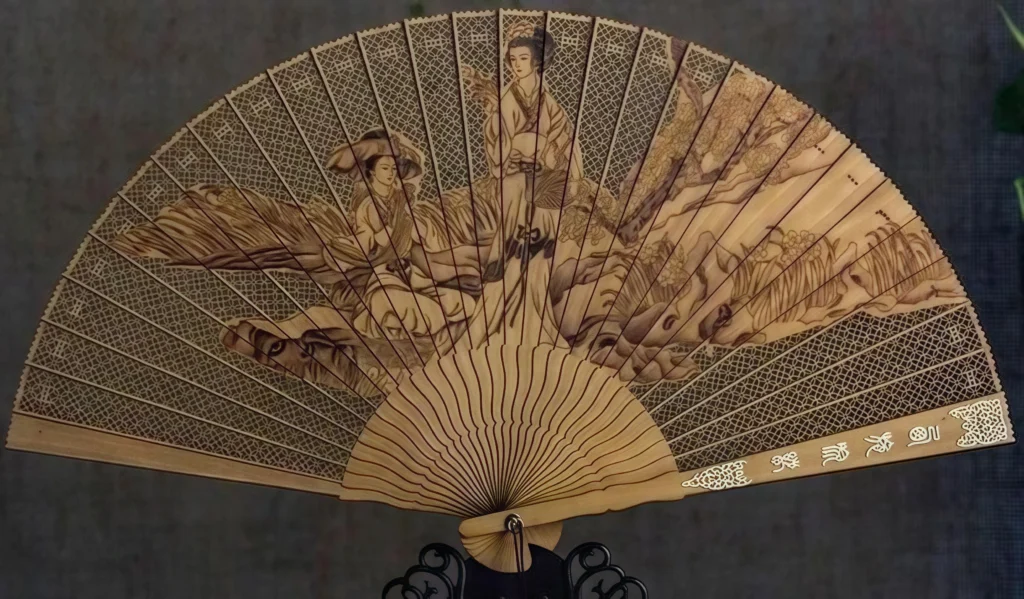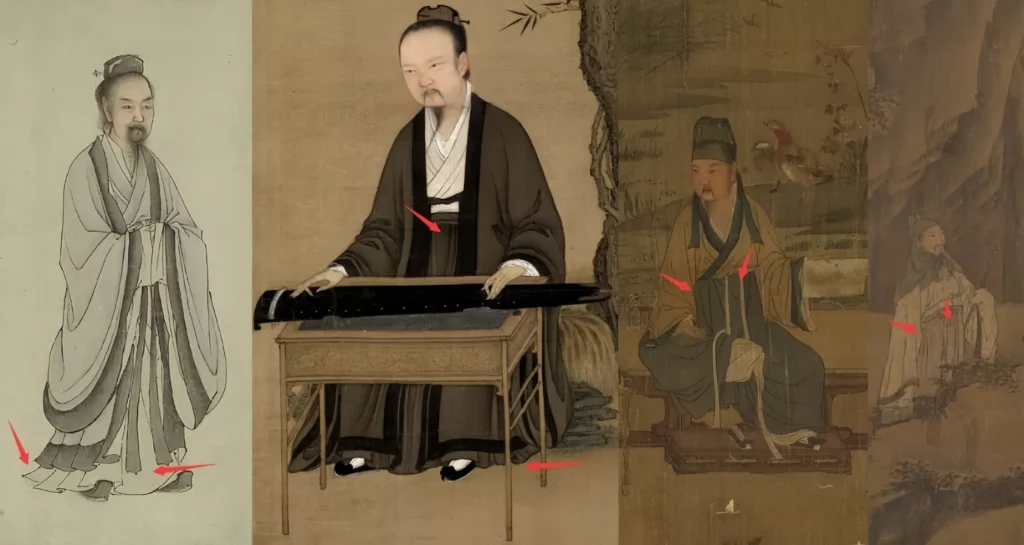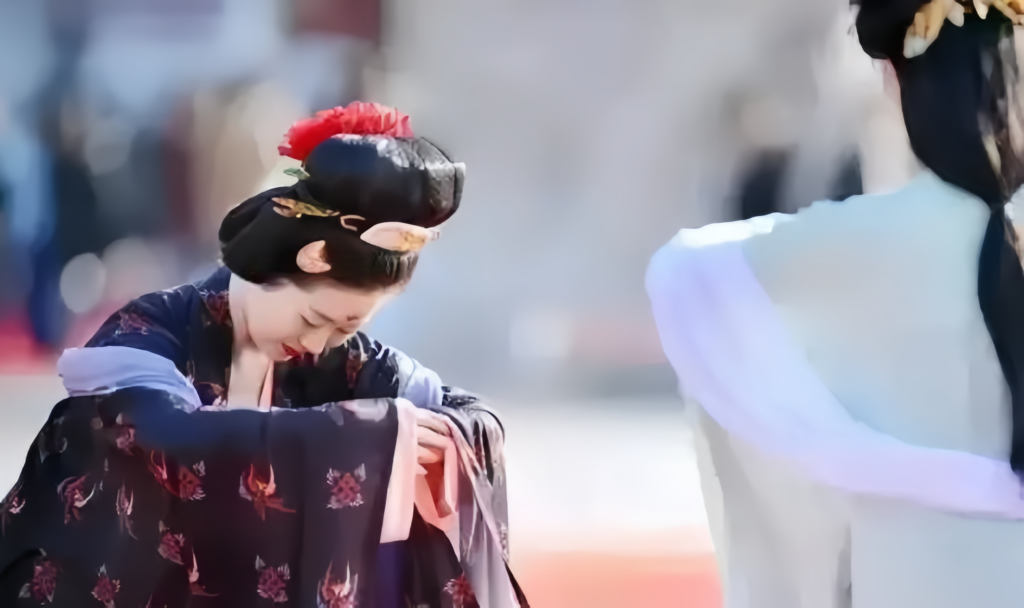Hanfu Q&A

Q: If you’re wearing Hanfu, why not pair it with cloth shoes?
A: Hanfu is modern wear, so mixing it with today’s shoes? Totally fine!
Q: Isn’t Hanfu ancient clothing? Aren’t you just doing a retro thing?
A: Sure, when modern Hanfu started, it went through a phase of recreating ancient outfits. But thanks to years of effort from Hanfu fans, it’s now a living part of daily life as the Han ethnic group’s modern clothing—a fresh take on ethnic wear.
Q: Doesn’t wearing Hanfu in front of skyscrapers feel weird?
A: If Hanfu looks odd with skyscrapers, then should you ditch your suits or T-shirts when stepping into ancient buildings or old towns? That logic’s a stretch! Those old sites are part of today’s world, just like Hanfu is.
Q: There are so few people wearing Hanfu outside!
A: Compared to folks rocking bikinis on the streets, Hanfu’s still the majority player.
Q: Are Hanfu styles divided by dynasty? Doesn’t that prove it’s ancient clothing from different eras?
A: Back when Hanfu was first revived, yeah, we recreated outfits from various dynasties—that’s what sets it apart from other ethnic dresses. But dynasties don’t matter now. Today’s Hanfu is categorized by styles like Qu Ju or Zhi Ju—it’s modern ethnic wear.
Q: Isn’t what you’re wearing straight from the Ming Dynasty?
A: Ming Dynasty clothes are buried underground. What I’ve got on is a modern ethnic outfit, made by Hanfu shops, inspired by Ming-style Hanfu.
Q: Why do you keep stressing “modern”?
A: Just to clear up for those who think the Hanfu movement is all about living in the past—it’s not!
Q: With so many traditional forms, reviving a piece of clothing feels shallow. What’s the point?
A: If traditional forms are so diverse, why can’t we revive a piece of clothing? Plus, clothing—especially robes—has always been a symbol of Huaxia’s ritual culture.
Q: Does wearing Hanfu mean rejecting qipao or Tang suits?
A: Hanfu faded out when the Qing Dynasty enforced haircuts and new clothes, sure, but that was centuries ago. We focus on the outcome, not the why. Its disappearance led us to bring it back. Promoting one culture doesn’t mean bashing another.
Q: With cultural diversity today, why cling to your own traditions?
A: Diversity doesn’t mean ditching your own roots or ethnic identity.
Q: In ancient times, clothing tied to class systems—doesn’t wearing Hanfu clash with today’s equality?
A: How’s that old class system linked to modern Hanfu?
Q: Do you want Hanfu to become the national dress?
A: Nope, we never said that. We’re just pushing Hanfu and its ritual culture. Whether it becomes a national dress? That’s not our call.
Q: So, are you into populism then?
A: It’s the people’s vibe, no big “ism” attached.
Q: What’s your goal in the Hanfu movement?
A: By spreading Hanfu, we hope to boost pride and belonging in Han ethnic clothing and Huaxia rituals, especially for those overly into foreign stuff.
Q: Hanfu’s so inconvenient—its decline makes sense, right?
A: First off, Hanfu’s super easy to wear. Second, tossing out our ancestors’ treasures just because they’re “inconvenient”? That’s a loser move, a disgrace to our lineage. “Inconvenience” isn’t a reason to ditch heritage. If it’s outdated, why haven’t Japan or Korea ditched kimonos or hanbok—instead, they hype them up?
Q: How will you know you’ve succeeded?
A: Ditch the “you” part first. Second, if one day wearing Hanfu on the street stops getting me mistaken for Japanese, I’d call that a win.
Three Dialectical Relationships to Clear Up Confusion
Dialectic Between Ancient Costume Lovers and Hanfu Revivalists
Ancient costume lovers just dig the clothes, but Hanfu revivalists are a triple threat—cultural revivalists, ethnic revivalists, and clothing revivalists all in one. For Hanfu, there’s no such thing as “lovers” since it’s ethnic wear, so “Hanfu lover” doesn’t fit. It’s ancient costume fans versus Hanfu revivalists.
Dialectic Between Hanfu Owners and Hanfu Revivalists
Owning Hanfu doesn’t make you a revivalist, and being a revivalist doesn’t mean you own one. Lots of revivalists are students without their own cash, so many don’t have Hanfu yet—but that doesn’t erase their efforts. Whether you rock Hanfu daily or push its revival through promo, you’re a revivalist.
Dialectic Between Hanfu Supporters and Hanfu Revivalists
All revivalists support Hanfu, but not all supporters are revivalists. Supporters might not own Hanfu, and revivalists might not either, but they’re definitely putting it into practice.





Responses